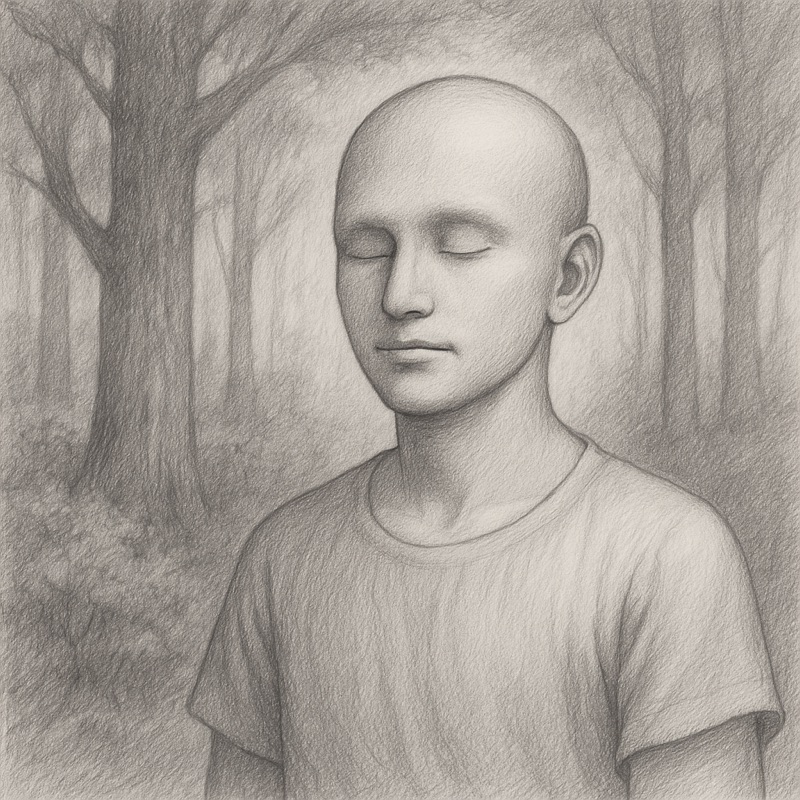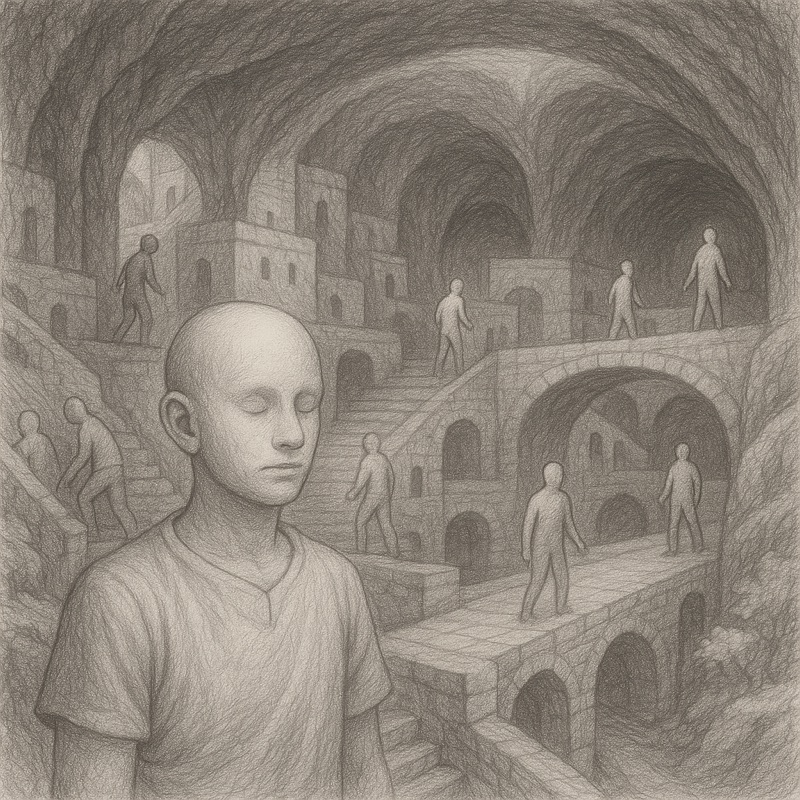Hey guys,
Welcome — and today we’ll explore one of our most prominent senses: vision.

Have you ever wondered what the world would be like if humans had never evolved eyes?
Probably not. I mean, who wants to miss watching the Miss Universe competition where girls in beautiful attire, ha ha!
Weekend trips just to watch those amazing sunsets, your favourite web series, a painting on your wall — it’s all sight. From cave drawings to clicking selfies in mall mirrors, vision seems to be the king of experience.
It’s true: vision has shaped how we build, express, and believe. But do you know sometimes it slows us down — literally. Like when even simple evening walks slows down if they find something stunning in park, Eyes wander, after all. 😉
There’s a story from the old Jataka tales — about a monk who lived a quiet, disciplined life in the forest. He was known for his calm and wisdom, but one day, he saw a beautiful woman walking by the river. It surprised him — this one passing glance had shaken the peace he had built for years. He thought to himself, “These eyes… they’re pulling me away from the path.” And in a moment of deep decision, he chose to remove his own eyes.
Looks strange? Isn’t it?
( sometimes eyes trigger biochemicals desires , even you never wished and never required )
Surprisingly there are a few scientific case studies where blind people gained vision later in life… and found it overwhelming. Too much to look at, too many things moving all at once. Some even said they missed the calm of nothingness — a world where they could feel more, and think more clearly.
What if evolution had taken a different route? What if humans never developed sight at all?
Would we still be the dominant species? Or would something else — like bats, with their echolocation — rise to rule the Earth? Maybe they’d grow larger, smarter, even more organized.
Perhaps we would’ve adapted differently. Human brains, without visual input, might develop 100x faster — no distractions, no decoding of complex visuals. Like programming in C — harder to write, but insanely fast to execute. We might be better at sensing pressure, sound, smell, or even vibration. Emotions may be sharper, more direct, less deceived by appearance.
And maybe, just maybe, we would have discovered gravity earlier — because we’d need to feel how things fall, rather than see them. Quantum physics, built on abstract understanding and pattern detection, might outpace general relativity — which relies heavily on mental visualizations and imagined frames of reference.
Would we still have science, technology, medicine? Absolutely. Broken bones still need healing. Blood still flows. Touch-based diagnostics would evolve. Schools wouldn’t be about just watching and listening — instead, they’d focus on listening, touching, smelling. Education would be immersive.
Books would be audio. Math would still exist. We’d count with fingers, stones, or sound rhythms. Numbers would be heard, not seen.
Even fashion might exist — but by feel, not look. Clothes would focus on comfort, fabric, scent, texture. Touch would be the new beauty. Perfumes might define social class more than haircuts.

Would we still build cities? Yes. But instead of skyscrapers that stretch into the sky, maybe we’d build deep — like ants. Imagine entire subway systems and eco-cities underground. Travel would still happen. The wheel would still be discovered. But maybe, roads wouldn’t matter much. There’d be no need for daylight savings. Our infrastructure might be designed for the dark — guided by sound maps, thermal flows, or scent trails.
And yes — accidents might be fewer. No distractions from a billboard or a beautiful face. Instead, we might teleport information, deliver through underground vacuum pipes, or simply use more intuitive, safer systems.
Entertainment? Oh yes. Music would rule. Stories would be felt, not seen. Theaters would be immersive domes of sound and scent, not visuals. Dance would be rhythm and breath and vibration. Musicians might be the true celebrities of this world.
And war? Maybe we’d still have weapons. Guns that sense pressure, not aim. But maybe less violence — because appearance-based biases would vanish. No color, no race, no skin-deep judgments.
It’s a strange, stunning thought:
What if we were blind… but wiser?
What if removing vision made space for deeper intuition — less noise, more truth?
In a world without eyes, would we see ourselves more clearly?
what are your thoughts 🙂

No comments:
Post a Comment